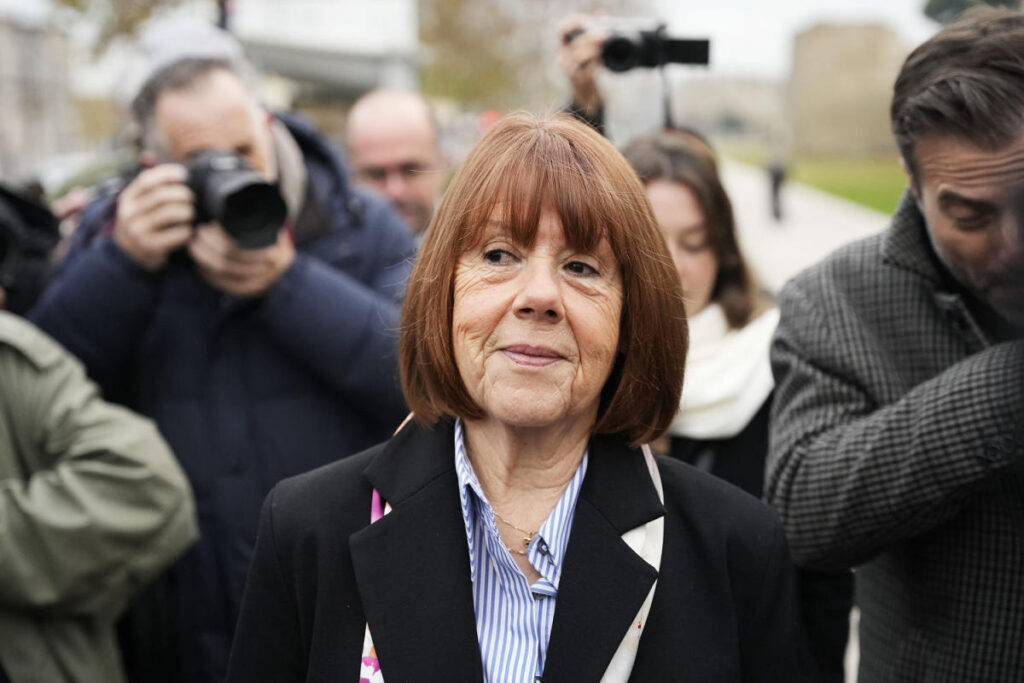In a landmark legal case that has reverberated throughout France, Gisèle Pelicot, a 72-year-old woman, sought justice against her ex-husband Dominique Pelicot and dozens of his accomplices for systematic rape and sexual assault endured over a decade. The trial became a pivotal moment in the discourse surrounding women’s rights and sexual violence in France, with Gisèle Pelicot’s courageous decision to waive her anonymity inspiring widespread support and bringing attention to the harsh realities faced by countless survivors of sexual abuse. After the court’s verdicts were delivered, she addressed the jubilant crowd in Avignon, expressing her hope for a future characterized by mutual respect and understanding between genders.
In a stunning revelation during the trial, it was disclosed that Gisèle Pelicot had only learned about the extent of the abuse after an investigation was launched against her husband when he was caught filming women without consent. It was through this police inquiry that disturbing evidence emerged, including graphic videos indicating that she had been the target of extensive sexual exploitation. Throughout the trial, she demonstrated immense bravery, opting for a public trial despite the potential for increased scrutiny and victimization. By sharing her story, Pelicot aimed to challenge the deeply ingrained patriarchal attitudes that perpetuate the trivialization of sexual violence and sought to empower other victims to come forward.
On December 19, 2024, the court handed down significant sentences as Dominique Pelicot was sentenced to 20 years in prison. In total, 46 other men were found guilty of various charges related to the abuse, with two convicted of attempted rape and two guilty of sexual assault. These men ranged in age from 26 to 74, receiving sentences that collectively amount to over 400 years in prison terms. Although around 15 of the men admitted their participation in the crimes, only a few expressed any remorse, highlighting a troubling lack of accountability and recognition of their actions within some segments of the accused.
The high-profile trial attracted widespread media attention, with over 150 journalists covering the proceedings and significant security measures deployed to accommodate the crowds of family members, supporters, and advocates for women’s rights. Activists regarded the case as a vital milestone in the fight against sexual violence in France, with hopes that it would lead to systemic changes in how society handles such offenses. As highlighted by Magali Lafourcade of the National Consultative Commission on Human Rights, there exists a significant gap between legal definitions of rape and the lived experiences of victims, necessitating comprehensive legal reforms and increased awareness of sexual violence’s impact.
The intense emotions surrounding the trial were palpable, as supporters of Gisèle Pelicot gathered outside the courthouse, promoting solidarity among survivors and calling for an end to the culture of silence surrounding sexual violence. Many held placards expressing their gratitude for Pelicot’s bravery in pursuing justice and her refusal to be silenced. This public demonstration of support underscored the broader movement advocating for the rights of victims and the imperative to confront a cultural backdrop that has often normalized or dismissed sexual crimes.
As Gisèle Pelicot highlighted the importance of her battle for her grandchildren’s future, her case serves as a clarion call for societal and legal transformation. While progress has been made, many believe that there remains an urgent need for a profound shift in attitudes toward sexual violence and victim rights. With studies indicating widespread feelings of inequality among women in France, activists continue to strive for a more equitable society where all individuals can coexist free from the threat of violence and discrimination. This case will likely resonate for years to come, marking a turning point in France’s struggle against the pervasive issues of sexual violence and the institutional challenges faced by survivors.

